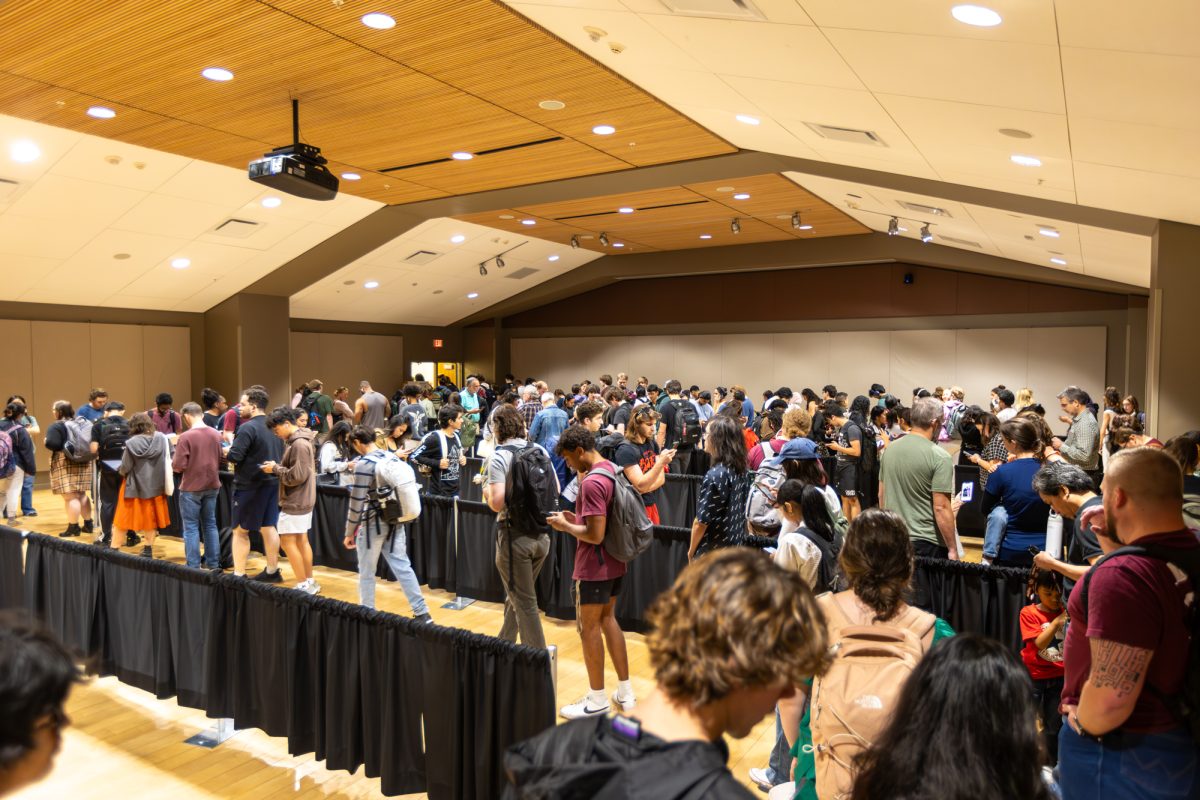Earlier this month, a Notice of Non-Discrimination email was sent to the Texas A&M student body on behalf of the Title IX department. The email is sent out every fall and spring semester in compliance with federal regulations.
As the associate vice president for compliance and Title IX and the Title IX coordinator for A&M, Jennifer Smith sent this email to each student directly. In a written statement, Smith said the email is intended to notify faculty, staff and students of A&M’s non-discrimination policy.
“Texas A&M intentionally provides more information than is required by federal regulations,” Smith said. “This is so that our community has information about how the Civil Rights and Equity Investigations (CREI) responds to allegations. … Employee reporting responsibilities, options for reporting and counseling, contact info for local law enforcement, amnesty, rights, resources and options for both parties.”
Robert Leseth, the public information officer for the University Police Department, said he hopes the notice will help students better understand the reporting options and resources available.
“Our victim’s advocate’s … entire role is to assist and support victims of sexual assault, meaning with involving Title IX, with things related to the university or with the legal process,” Leseth said. “That’s their role.”
Leseth said when following up with the victim after they report, they don’t want to bombard the victim during the traumatic experience.
“Most of the time, a couple days usually pass, and the detective and our victim’s advocate, Jessica Laney, will contact and follow up with the victim,” Leseth said. “Most of the time, they meet with Jessica first, and she’s right there supporting them, but we also can’t force somebody to pursue criminal charges or to get help. But we do our absolute best to connect our victims to resources.”
When looking at A&M’s Title IX department’s overall statistics, Smith said that from Sept. 1, 2023, to Aug. 31, 2024, the CREI resolved 1,638 civil rights cases.
“Approximately two-thirds of these cases contained a Title IX allegation, while the rest contained an allegation of discrimination or harassment based on race, age, national origin, religion, pregnancy or sex,” Smith said.
Smith said the Title IX office has received some students who’ve expressed concerns about verbally telling the Title IX office and not automatically resulting in an investigation.
“Under the federal regulations, CREI is prohibited from opening a Title IX investigation without a ‘Formal Complaint’ form, a written document, signed by the complainant,” Smith said. “Students who have experienced trauma sometimes find the extra paperwork difficult, in addition, some students do not want the accused party to know their name.”
Smith said each complainant is assigned a personal case manager who meets with them to review their rights, offer academic and supportive resources and provide options for resolving the complaint.
“The Case Manager explains the formal complaint requirement during the meeting and provides a written reminder about the requirement,” Smith said. “They also explain that retaliation is strictly prohibited and can offer many other options, such as No Contact Directives, change of dorm room or transfer to a different class to ensure the parties don’t have to interact.”
Smith said one resolution option offered to a complainant is for the Title IX coordinator to have an awareness conversation with the accused party. This option is available without a formal complaint form, allowing the complaining party to remain anonymous.
“This option does not result in an investigation or disciplinary sanction, but it does make the accused party aware of the complaint and the potential for disciplinary action, should the behavior continue,” Smith said.
Smith said students have additionally expressed concern that CREI cannot automatically force an accused party to move to a different dorm after filing a complaint. Under federal regulations, the accused party is presumed to be ‘not responsible’ for alleged conduct until the hearing officer makes a determination after a live hearing.
“CREI can offer both parties the option to move to a different room but cannot require the accused party to move until after a finding of responsibility, the exception is the CREI can request an interim restriction when there is a physical danger to an individual or the community,” Smith said. “A party can request that they be moved to a different dorm anytime, and the case manager can also assist with a No Contact Directive … while an investigation is pending.”
Leseth said one issue the University Police Department has had is ensuring students and the university community feel comfortable reporting to it.
“Some people don’t understand what we do or the resources we have access to,” Leseth said. “Then, others are scared to report to us for one reason or another, but we want to help victims. We’re not going to judge anybody, we want to be here to help victims and pursue crime, that’s our job.”
Leseth said the University Police Department’s Community Services Division focuses on education and awareness and offers free courses and presentations on personal safety to make students more comfortable reporting and going to the department.
“Making sure that people feel comfortable reporting to us,” Leseth said. “That they feel like if they tell us something, that we’re going to act on it, we will do that and work in their best interest.”
Leseth said one of the newer resources implemented by the University Police Department is counselors embedded with its patrol division. Two of these counselors are co-responders Megan McCarty and Chris McDonald.
“Their role is to de-escalate and connect students and other university community members to resources available within University Health Services at Beutel,” Leseth said. “This has opened a lot of access to resources, and having them available to connect the students with those resources and be there for mental health helps a lot.”
Smith said students have expressed concerns about attending a live hearing and submitting to cross-examination or questioning about their allegations. For students seeking a formal resolution process, the live hearing with cross-examination is a federal requirement.
“During a live hearing, a student may choose not to answer questions, and CREI recognizes that a live hearing with cross-examination can be stressful, as a result, CREI provides a party with an advisor — either an attorney or a Title IX expert — free of charge during a live hearing,” Smith said.
Another concern is the length of time to complete an investigation or live hearing, Smith said. The CREI now offers a mediation option that does not require a lengthy investigation or a hearing.
“Both parties must agree to participate in mediation voluntarily, but if they do, it offers both parties the option to craft a resolution to the complaint that is unique to their needs and can be completed in less than a week,” Smith said.
If a student doesn’t want to report yet or is unsure of what to do, Leseth said he suggests they go to University Health Services, which offers counseling services.
“I think it’s just really important that if you’re the victim of sexual assault, that you do report it right, and you can contact us at 979-845-2345,” Leseth said. “That way, we can help you get connected with resources, and we can help and assist you through the process.”















